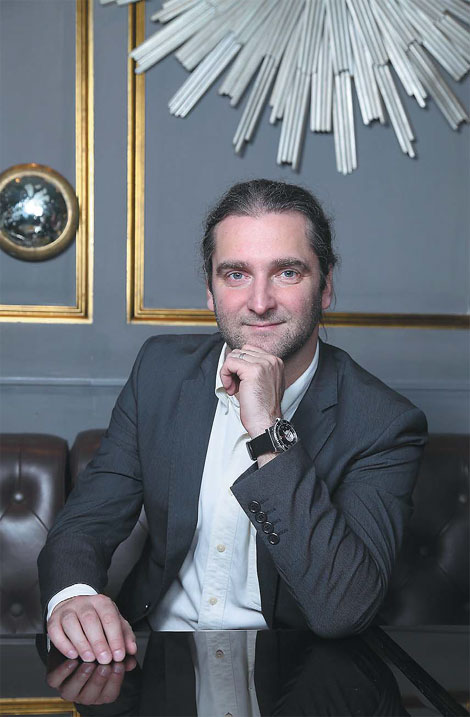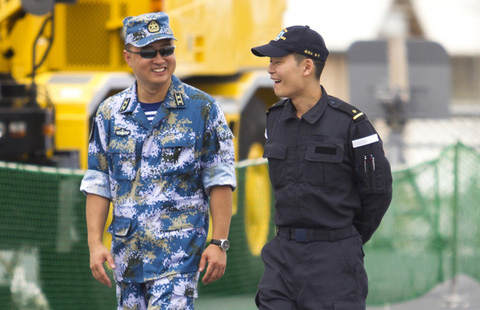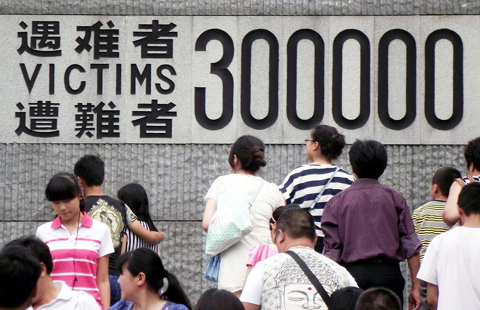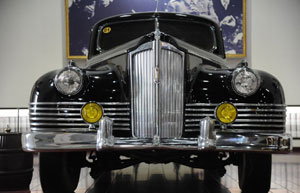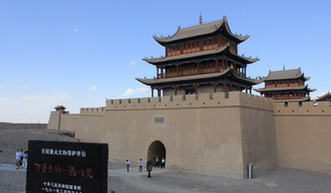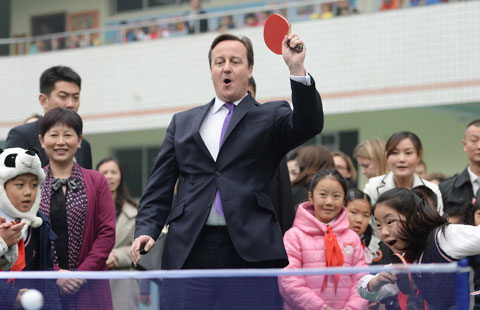Bridging the cultural divide
By Liu Lu ( China Daily Europe ) Updated: 2014-07-04 08:14:03
|
Maciej Gaca is dedicated to promoting cultural exchanges between the two countries. Li Qing / For China Daily |
Polish Sinologist says artistic ties between the two countries are deepening by the year
In recent years there has been an increasingly steady flow of Polish musicians, artists and composers to China, providing local audiences with a taste of what the eastern European country has to offer.
And behind many of those visits is just one man, Maciej Gaca, the culture counselor of the Polish embassy in Beijing.
Gaca is passionate about sharing his knowledge about China and has studied the language and culture for more than 25 years.
The 45-year old says he is now dedicated to promoting cultural exchange between the two countries, and the most recent figures show just how fast that program has developed under his leadership.
Since 2010, he says, more than 100 Chinese-Polish cultural and arts projects have been produced or co-produced yearly.
Gaca sees his position as "a bridge" between the peoples of China and Poland, "and from what I have seen, there is genuine interest in each other's culture, maybe more so than any other cultural relationship existing between two countries today".
But, of course, if you want to create a successful bridge, you have to experience the conditions on both sides, and Gaca has done that.
At 18, he chose Chinese as his major at the Adam Mickiewicz University, one of Poland's major universities, based in his home city of Poznan in the west of the country.
That interest in China meant two spells studying at the historic Peking University, which pretty much sealed his determination, he says, to work to develop ties between the two countries.
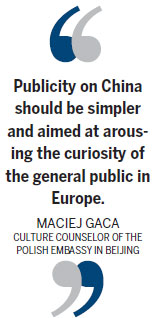
Gaca's master's thesis was on Chinese character writing, and he then decided to specialize in one of China's minority languages.
He embarked on a PhD in the Naxi language called Dongba, one of the few languages that use pictograms.
From 2001 to 2007, he acted as deputy director of the department of Sinology at Adam Mickiewicz University, and he then helped to establish the second Confucius Institute in Poland, the nonprofit group that aims to spread Chinese language and culture around the world, becoming its first director.
In his role now, he says, understanding a country's culture and arts is by far the best way to get to know its people, its past and its future.
"Culture is a fantastic tool with which to facilitate communication, because messages can be passed and understood without the need of overcoming language barriers."
He is convinced that strong cultural links between countries also influence progress in others areas too, such as business and economic cooperation.
"An appreciation and awareness of each other's culture goes such a long way to helping people from what can be very different nations to get on, and in helping to cement stronger ties in many areas."
He says that his years in academia allowed him to witness for himself, the huge rise in interest by Polish people of all ages to learn Chinese.
"The world is now focusing on China's fast development, just as it was in the 1990s people's interest in Japan and Korea," Gaca says.
"I have worked over the years to bring more people to China to study and work, and I am very proud of having played my part in teaching them about the fascinating country, and showing them that many of the traditional stereotypes associated in the West with China are just not true."
Gaca says the number of Polish students studying Chinese keeps growing every year, helped considerably by the country's now four Confucius Institutes.
Three of Poland's top universities have Sinology departments, and Chinese language is taught in many more, as it is in schools.
"Polish students are curious about China, and when they start to learn the language it is a challenge and very exciting for them."
"We now have classes available for people of all ages; there is no limit."
But still, he says, he would like to see better promotion of China in Europe.
"I have noticed some collaboration between Chinese and European media organizations, particularly TV stations, but often I find that some of the programs are too complicated for Westerners to understand. What people want is simple and easily understood information.
"It's like when you start to teach a child, you don't start with mathematics or geometry, but simple things like addition and substraction.
"Publicity on China should be simpler and aimed at arousing the curiosity of the general public in Europe - that's where culture and the arts play such an important part."
But, of course, Gaca's role is also to promote Polish culture in China on behalf of his government.
"I do that by encouraging Chinese people to be more open to foreign cultures in general - that's so important for mutual understanding and learning."
China and Poland first established diplomatic ties in 1949, and over the coming months two events will take place that Gaca says are among the most high-profile promotions of his country's history ever held in China.
A national Polish exhibition is being planned in the National Museum of China in Beijing, which will showcase some of Poland's most historic pieces of art, only the fourth time such a major event has been held outside the country.
Then, some of its best-known modern artists are expected to hold a major showing at the National Art Museum, also in the Chinese capital.
Gaca adds that the best-known Polish figures in China are still arguably the composer Frdric Chopin and Marie Sklodowska-Curie, the physicist and chemist who conducted pioneering research on radioactivity.
But he insists his country is now anxious to promote its more modern talents, from literature and poetry particularly.
"Events such as those I mentioned show clearly that every effort is being made to bring people in the cultural and arts sectors from both countries together. Today, promoting Chinese-Poland culture is genuinely a lot more than just dialogue and empty slogans.
"There is a real curiosity between the two countries towards each other, and I am determined to continue my mission of cementing even stronger ties between these two very rich cultural nations."
liulu@chinadaily.com.cn
(China Daily European Weekly 07/04/2014 page29)
|
|
|
|
|
|
|
|
European Weekly
 We will not give up search, Li vows
We will not give up search, Li vows
International hunt for missing airliner continues after fruitless six-day search


